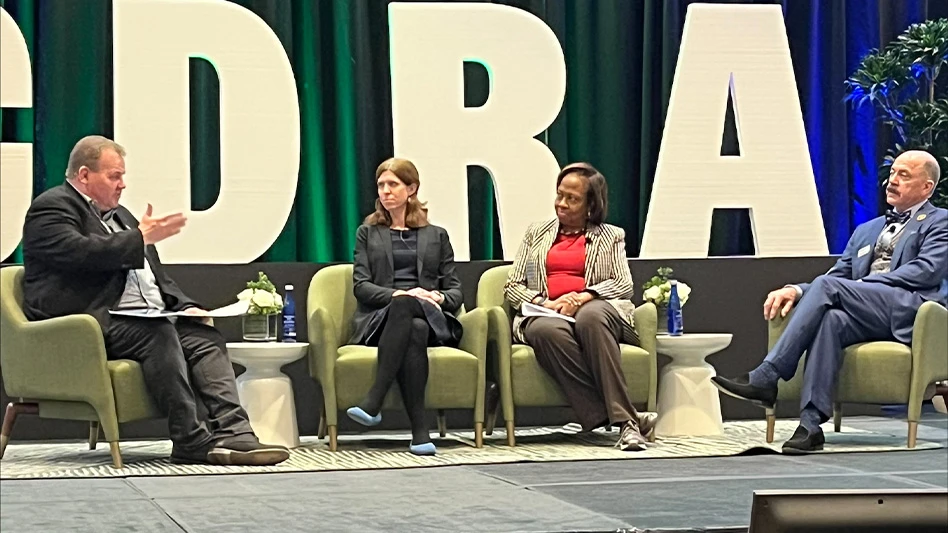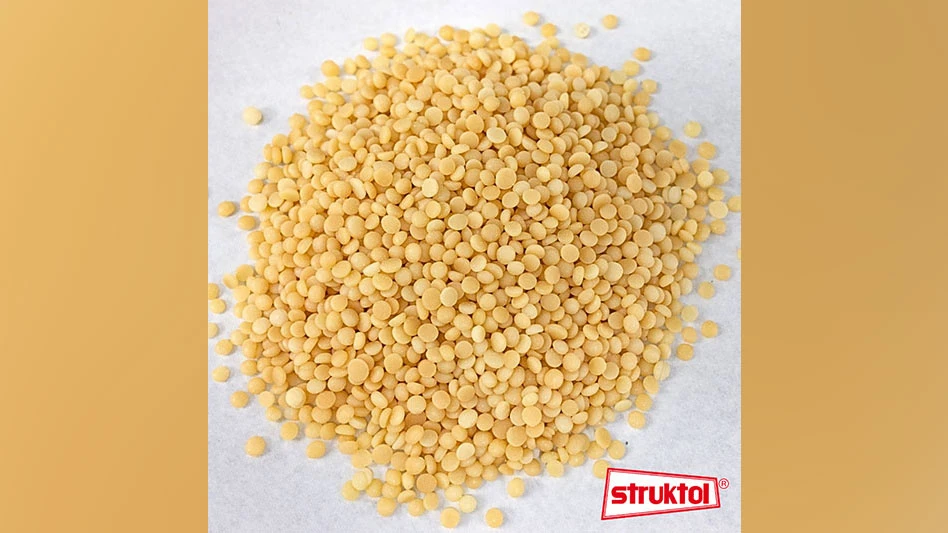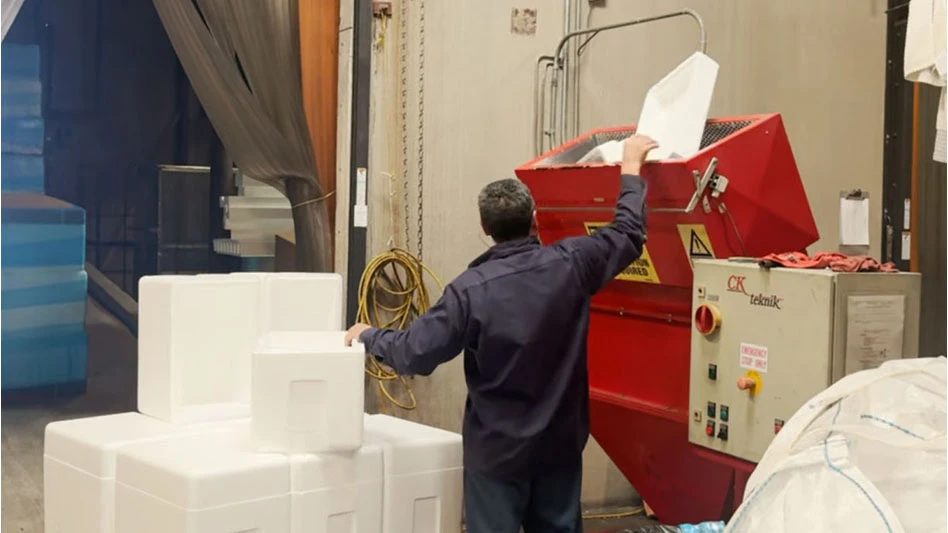
Photo courtesy of Avantium N.V.
Amsterdam-based Avantium N.V., which specializes in renewable and circular polymer materials, says it has found a solution for recycling polycotton textiles through a collaboration with the Industrial Sustainable Chemistry group at the University of Amsterdam.
The company's new patented technology breaks down the cotton in polycotton fabric into glucose using hydrochloric acid, leaving the polyester intact, which allows the polyester to be fully recycled and facilitates fiber-to-fiber recycling. Additionally, the company says cotton glucose can be used as feedstock for industrial applications.
RELATED: Avantium’s Releaf product enters cosmetics industry
The method, recently published in Nature Communications, is the first effective method for recycling both polyester and cotton components with high efficiency, Avantium says.
Avantium has been using its Dawn Technology pilot plant to test the viability of breaking down and recycling postconsumer polycotton textiles at a larger scale. The company says that by using highly concentrated HCI on polycotton scrap, the cotton cellulose was fully hydrolyzed into glucose, which can be separated from the solid polyester residue, enabling complete recycling of polyester and the use of cotton-derived glucose for a wide range of applications, such as polymers, resins and solvents.
Avantium says the trials at its pilot plant have shown high glucose yields from polycotton scrap, indicating scalability and cost-effectiveness, adding that its technology offers a solution for a circular, low-carbon textile industry and aligns with new regulations that make textile producers responsible for waste management.
The company supported its project by hosting PhD students from the Industrial Sustainable Chemistry research group of the University of Amsterdam in its laboratories and its pilot plant in Delfzijl, the Netherlands. The first author of the paper, PhD student Nienke Leenders, works on secondment at Avantium.
“We are excited about this groundbreaking solution, which is not only providing feedstock for our own FDCA [furan dicarboxylic acid] and PEF [polyethylene furanoate] technology and aligns with our environmental objectives but also marks a crucial advancement towards achieving a circular economy,” Avantium Chief Technology Officer Gert-Jan Gruter says. “At Avantium, we are committed to perfecting this technology in collaboration with partners and broadening its application to address the global textile waste problem. Simultaneously, we aim to supply nonfood glucose to support the large-scale transition toward a bio-based economy.”
Latest from Recycling Today
- US steel imports finish 2025 down 12 percent
- Cascades sells corrugating plant to Crown Paper
- You have production scrap, WEIMA machinery processes it where it’s made
- CP Group, Cisek Inspections forge innovative X‑ray recycling alliance
- Regroup, CP Group unite for cutting-edge Halifax MRF
- Modern MRFs: AI, automation and safety, redefining recycling operations
- CalRecycle opens comment period on proposed SB 54 revisions
- 2026 Circular Steel Summit: Taking stock of tariffs





